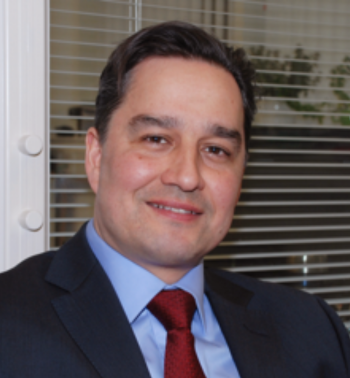1 May 2025
Prof Robin Ali tells us how his new role as Academic Lead for Advanced Therapies at King's Health Partners culminates a long journey of developing effective gene and cell therapies, and will support the next generation of researchers.
What is your role?
I am Professor of Human Molecular Genetics at King’s College London and lead a research group that develops gene and stem cell therapies for the treatment of retinal disorders. I am also Director of The Centre for Gene Therapy and Regenerative Medicine in the Faculty of Life Sciences and Medicine and am Director of the King's College London Gene Therapy Vector Facility which manufactures clinical grade vectors for first-in-human trials.
Recently I have been appointed to a new role which is Academic Lead for Advanced Therapies at King's Health Partners (KHP). King’s College London is already a world-leader in this area and in my new role I aim to co-ordinate expertise, infrastructure and strategy across KHP to facilitate the development of advanced therapies across the partnership.
What do you enjoy most about your role?
I enjoy having a clear sense of purpose and knowing that the work that we do is in many ways pioneering and has the potential for major impact on healthcare. There are always new challenges, I am constantly learning and it is very satisfying to have been involved in gene and cell therapy since the early 1990s when the field was just beginning. I have developed a pipeline of therapies for eye disease all the way through from technology development, proof-of concept preclinical studies, development of clinical grade (GMP) manufacturing, and clinical trials and commercialisation.
It has been a long journey, but it is gratifying to think that some of these therapies are now getting close to market authorisation. I would now like to also use this experience in my role as Academic Lead for Advanced Therapies at KHP to help support the development of advanced therapies for much broader range of conditions.
What inspired you to get into this work?
We are living at a time when rapid advances in science and technology provides us with the ever increasing knowledge and tools to develop effective gene and cell therapies for previously untreatable human disorders.
My inspiration originally came from seeing how effectively we could use these approaches to cure mice of all types of disease. Of course it is much harder to develop treatments for humans but it is just a matter of time, perseverance (and funding!) and now I am inspirited by the impact that advanced therapies are starting to have in the clinic.
What are the benefits of your work for staff, students, and patients?
We are only at the beginning of the advanced therapies medical revolution.
Although we have now seen many examples of gene and cell therapies providing life-saving or life changing treatments for intractable cancers or immunodeficiencies, inherited blindness, fatal neuromuscular conditions, and blood clotting disorders, there are still many aspects of the technologies that need to to be improved and many more conditions that require these types of treatments. I expect that the infrastructure and expertise we are building will support the next generation of researchers across KHP to develop an increasing number of highly effective advanced therapies.
What would be your one career top tip?
Identify what you really enjoy doing and focus on your strengths - success and career progression will follow.
Find out more about the work of the KHP Centre for Translational Medicine.





